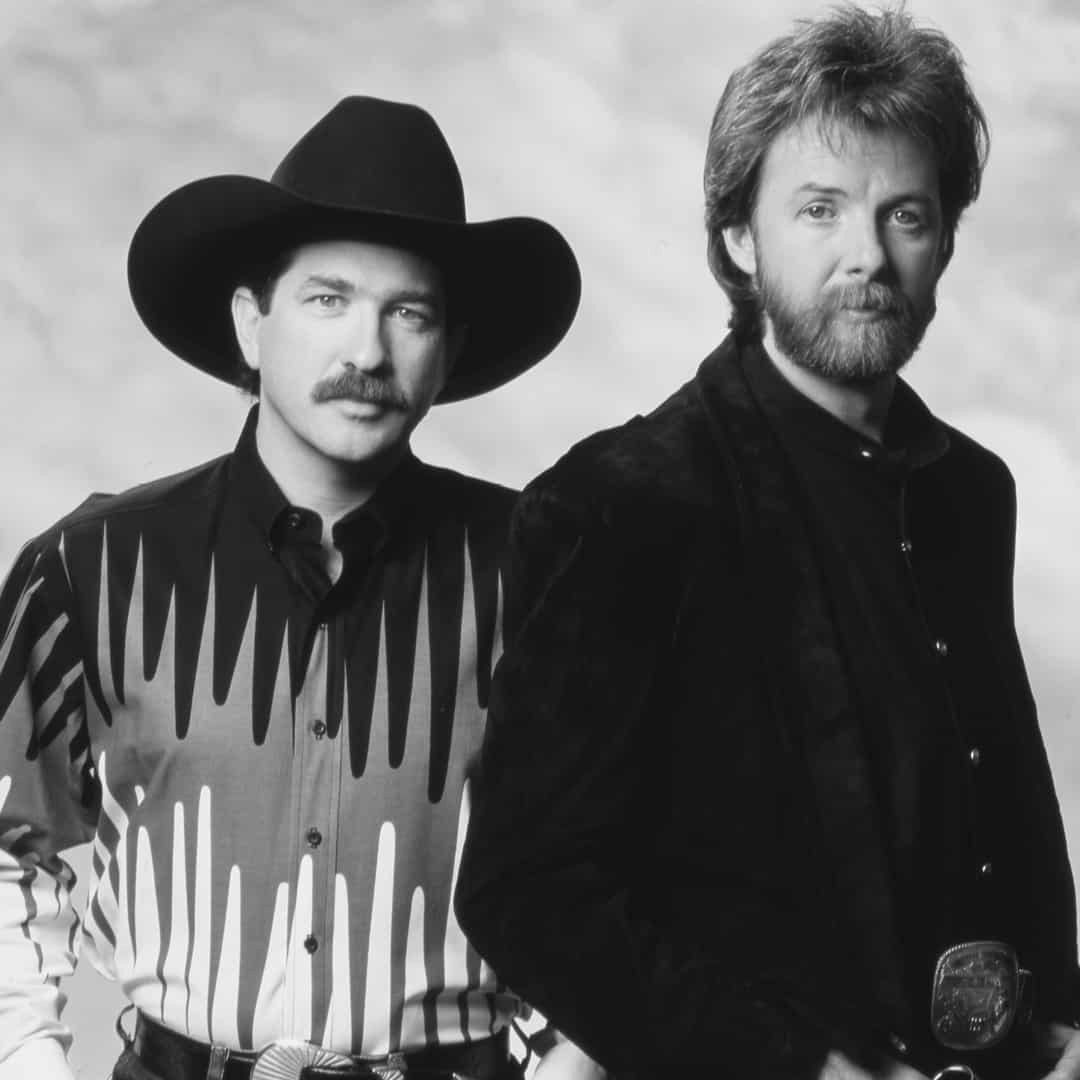George
Strait

-
Inducted2006
-
Born
May 18, 1952
-
Birthplace
Poteet, Texas
George Strait’s name has become synonymous with “real country.” The Texas traditionalist is one of the most successful, enduring, and influential recording artists in any field.
Early Life in Texas
Strait grew up in Pearsall, Texas. His parents divorced when he was still in grade school, and Strait and his older brother, Buddy, were raised by their father, John Strait, a junior high school math teacher. The boys learned ranching early on, helping on the family’s 2,000-acre spread.
Strait didn’t listen much to country music growing up; rather, he was inspired by mid-1960s British Invasion rock groups and joined several garage bands in high school. He eloped after graduation with his longtime sweetheart, Norma, then signed up for a stint in the Army.
While stationed in Hawaii, Strait found his true calling: country music. In 1973, he auditioned for and won the role of singer in a country band on base. He absorbed the music of Hank Williams, George Jones, and Merle Haggard, and Haggard’s tribute album to the legendary Bob Wills, A Tribute to the Best Damn Fiddle Player in the World (or, My Salute to Bob Wills), was instrumental in turning Strait in the direction of western swing.
Back home, Strait enrolled at Southwest Texas State University (now known as Texas State University-San Marcos) to pursue a degree in agriculture, but by then he was also seriously considering a music career. He hooked up with the Ace in the Hole band, kept an extensive regional performance schedule, and recorded several singles on the D Records label. Despite club success, however, several trips to Nashville failed to drum up interest in Strait as a major-label prospect.
Songs
00:00 / 00:00
00:00 / 00:00
00:00 / 00:00
Strait to Nashville
During one fortuitous club appearance, club owner and former record promotion man Erv Woolsey liked what he heard. In 1981, Woolsey helped Strait sign with MCA, and he remained Strait’s behind-the-scenes advocate before eventually taking on the role of full-time manager.
Strait arrived in Nashville just as the Urban Cowboy movement was in full swing. His first honky-tonk missive, 1981’s “Unwound,” went to #6 on the Billboard charts. The accompanying album, Strait Country, helped to increase hardcore country airplay on many radio stations.
Much of modern country music includes pop sounds, but Strait consistently draws from both the western swing and the honky-tonk traditions of his native Texas. As a vocalist, he proved a masterful interpreter: while his Texas accent came through, he avoided over-the-top twang and flashy fillips in favor of subtle phrasing. Through his love of Haggard, he developed both the evocative nuance of Lefty Frizzell and the smooth, crooning shadings of Bing Crosby and Perry Como.
Strait began his long reign at the top of the charts, and subsequent Top Ten hits displayed his range. Although his roots were in Texas dancehall music, he also proved he had a way with pop-influenced tunes, typified by “If You’re Thinking You Want a Stranger (There’s One Coming Home)” (#3, 1982), and smooth ballads, as shown in his performance of “Marina Del Rey” (#6, 1983). His #1 hits included his cover of the Bob Wills staple “Right or Wrong” (1984), the sly “All My Ex’s Live in Texas” (1987), and the western swing of “Am I Blue” (1987). Albums such as 1984’s Does Fort Worth Ever Cross Your Mind emphasized Strait’s ongoing debt to western swing and honky-tonk.
A Tragic Loss, a Movie Role, and Some Important Songwriters
Personal tragedy struck in 1986, when Strait’s thirteen-year-old daughter, Jenifer, was killed in a car accident. (Strait’s son, George Jr., affectionately known as “Bubba,” was born in 1981.) When Strait won Male Vocalist of the Year at the Country Music Association Awards that year—for the second year in a row—he accepted it in Jenifer’s memory.
By 1990, the year Strait won his second consecutive CMA Entertainer of the Year award, country’s ranks had swelled with many young “hat acts” who dressed like Strait, but few were able to mimic his keen blend of traditional and contemporary sounds. As evidence of his staying power, his blockbuster hit “Love Without End, Amen” topped the charts for five weeks.
Strait hit the big screen in 1992 with Pure Country, a film in which he played a disillusioned country star named Dusty Chandler. The soundtrack of the same name became Strait’s biggest seller to date, yielding the #1 hits “I Cross My Heart” and the album opener “Heartland.”
Although Strait seldom wrote songs until well into his hitmaking career, he has relied on the cream of the tunesmith crop throughout the years, including stalwart Whitey Shafer and fellow Country Music Hall of Fame member Dean Dillon. In recent years, Strait has leaned on the talents of singer-songwriters Jim Lauderdale and Aaron Barker. He has also recorded several songs co-written by his son, Bubba.
Videos
“All My Ex’s Live in Texas”
live in Dallas, Texas, 1986
“Amarillo by Morning”
live in Tucson, Arizona, 1990
George Strait’s musical consistency and unadorned performing style continue to make him one of American music’s most popular artists.
Photos
-
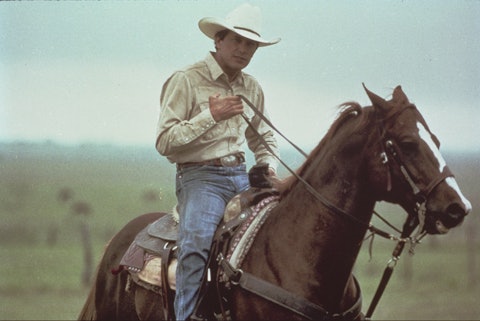
George Strait, 1987. Photo by Walden S. Fabry Studios.
-
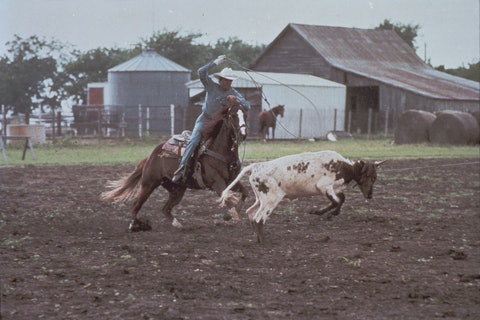
George Strait, 1987. Photo by Walden S. Fabry Studios.
-
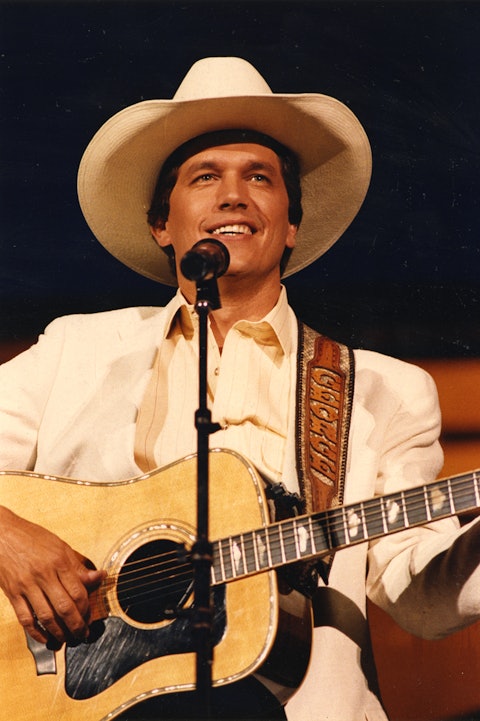
George Strait onstage, 1987. Photo by Walden S. Fabry Studios.
-
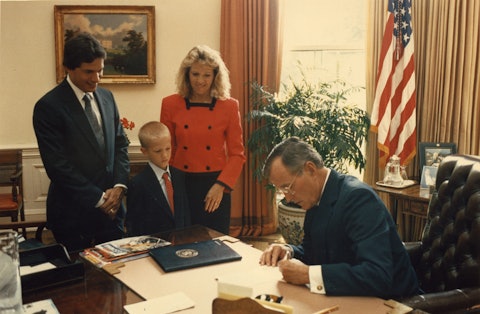
From left: George Strait, his son George “Bubba” Strait Jr., and his wife Norma watch President George H. W. Bush at his desk in the Oval Office, 1987. Photo by Walden S. Fabry Studios.
-
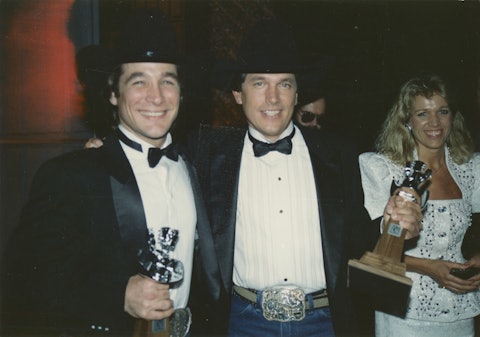
George Strait and Clint Black at the Academy of Country Music Awards, 1991. Photo by Arlene Richie.
-
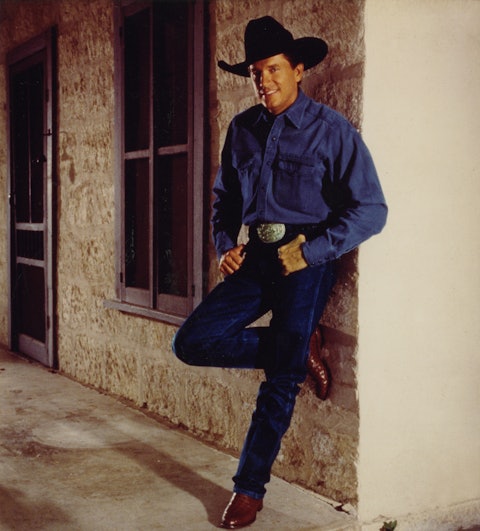
George Strait, 1990s. Photo by Walden S. Fabry Studios.
-
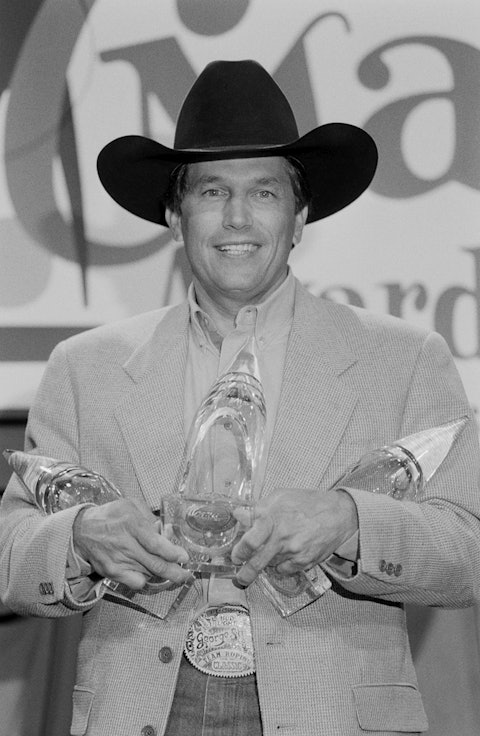
George Strait at the Country Music Association Awards, 1996. Photo by Raeanne Rubenstein.
-
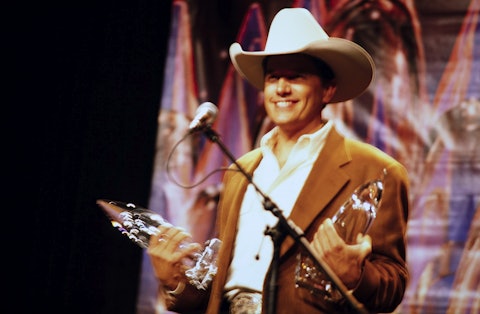
George Strait at the Country Music Association Awards, 1997. Photo by Raeanne Rubenstein.
-
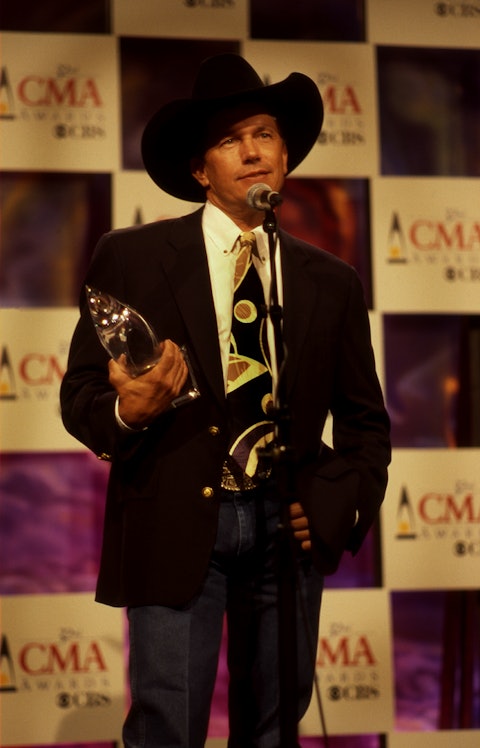
George Strait at the Country Music Association Awards, 1998. Photo by Raeanne Rubenstein.
-

George Strait, 1999. Photo by Walden S. Fabry Studios.
Setting Records and Staying in the Spotlight
Strait’s career continued undiminished in the late 1990s and beyond. In 1995, he celebrated his fifteenth year as a recording artist by releasing a boxed-set career retrospective, Strait Out of the Box, which flew out of stores in unprecedented numbers.
One year later, the CMA presented him with the Single of the Year award for “Check Yes or No,” as well as the awards for Album of the Year (Blue Clear Sky) and Male Vocalist of the Year. Strait won another CMA Male Vocalist of the Year award and another CMA Album of the Year award (Carrying Your Love with Me) in 1997. The next year, he kicked off the George Strait Country Music Festival, a nationwide, multi-artist tour sponsored by Nokia and Chevy Trucks, and released yet another best-selling album, One Step at a Time. He released Always Never the Same in 1999 and followed in 2000 with George Strait, which showcased his hit single “Go On.”
Strait has continued his winning streak into the twenty-first century with albums including the technologically experimental The Road Less Traveled (2001), 2005’s Somewhere Down in Texas, Twang (2009), 2011’s Here for a Good Time, and 2019’s Honky Tonk Time Machine. In 2008, he won the CMA’s Single of the Year award, for “I Saw God Today,” and the organization’s Album of the Year award, for Troubadour, released earlier that year. In 2013, Strait was again named CMA Entertainer of the Year.
Strait’s musical consistency and unadorned performing style continue to make him as one of American music’s most popular artists. He has earned forty-four #1 Billboard country hits, more than any other artist, and ranks third—behind Elvis Presley and the Beatles—among artists with the most gold- and platinum-certified albums.
Although Strait announced that he would be retiring from touring in 2014, he continues to perform in Las Vegas and occasionally at large venues in other cities.
—Chrissie Dickinson
Adapted from the Country Music Hall of Fame® and Museum’s Encyclopedia of Country Music, published by Oxford University Press

